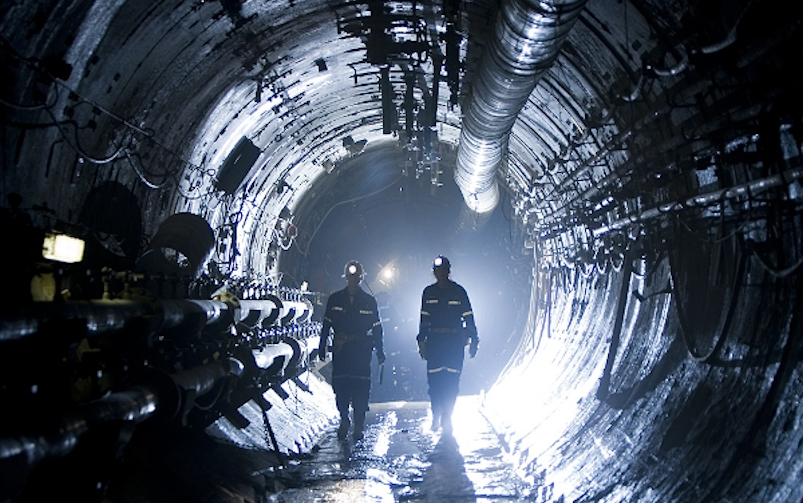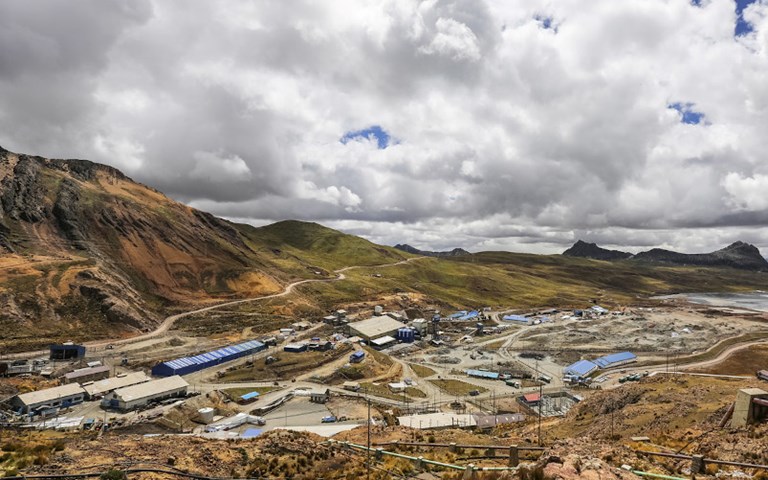Pan American Silver has suspended operations at its Huaron (pictured) and Morococha mines in Peru after workers at both mines tested positive for COVID-19. Courtesy of Pan American Silver.
(Like what you’re reading? Get our weekly recap delivered straight to your inbox each Friday.)
Welcome back to your weekly mining news recap, where we catch you up on some of the news you may have missed. This week’s headlines include Teck reporting significant second quarter losses, Iamgold restarting construction at its Côté gold project and First Cobalt planning to expand processing capacity at its cobalt refinery project.
Our annual Names to Know feature is now live! We’ve profiled some of the key players in the industry who bring new approaches, tools and strategies to Canadian mining. This year’s class includes Nouveau Monde’s vice-president engineering and environment Martine Paradis, the Northwest Territories minister of industry, tourism and investment Katrina Nokleby and Teck Resources’ sustainability and climate change manager Chris Adachi.
Teck has released its second quarter results for 2020, reporting steep losses following a decrease in production as well as in price and demand for the company’s principal products. The company reported a quarterly loss of $149 million, compared to a $231 million profit in last year’s second quarter, after suspending operations at a number of its sites due to plunging prices and pandemic-related regulations. The company also reported $185 million in expenses related to the COVID-19 pandemic at its operating sites, including costs for medical testing and supplies, transportation and accommodation for physical distancing and placing sites in care and maintenance.
Companies resuming mineral exploration in British Columbia will have a number of new health and safety factors to consider when organizing camps this year in light of the COVID-19 pandemic. Under provincial government guidelines, all camps are required to have a COVID-19 safety plan before resuming exploration, as well as to develop their own prevention and control protocols, such as maintaining physical distancing and screening employees before any travelling. The key health and safety consideration and challenge for mineral exploration companies this summer will be organizing camps in a way that allows for physical distancing.
Iamgold is resuming construction at its Côté gold project in northern Ontario, a joint venture with Sumitomo Metal Mining, due to an improved gold market. Construction on the project was halted last January due to low gold prices, but with gold recently reaching as high as US$1,841 per ounce, the company will restart project construction in the third quarter of 2020. Once complete, the mine will have a net present value of more than US$2 billion, with a five per cent discount rate, at a gold price of US$1,700, and is expected to generate 367,000 ounces per year over the course of an 18-year mine life.
Iamgold also announced that it is restarting operations at its Rosebel gold mine in Suriname after union leaders issued a stop work order last month when seven workers tested positive for COVID-19, as reported by Reuters. While the union agreed to the mine restart, it said that while employees are not satisfied with the company’s disinfection and transportation measures at the mine. According to the company, it has implemented new health and safety measures such as screening employees, implementing distancing measures and taking worker temperatures.
Geoscience BC and the British Columbia Geological Survey have signed a three-year memorandum of understanding to coordinate and collaborate on geoscience research on mineral resources. Under the agreement, the organizations will identify areas for greater public mineral geoscience research, standardize data collection and public access to data and will create new research projects, programs and initiatives in the province. The two organizations have also formed a coordination steering committee to guide their collaboration and have signed a charter outlining its purpose and functions.
First Cobalt is turning its focus to expanding capacity at its First Cobalt plant as part of its plan to restart the refinery, as reported by Northern Ontario Business. The company has decided to eschew its plan to use the refinery as a demonstration plant, and instead try to reduce the US$56 million price tag of restarting the plant by creating North America’s first toll processing facility. According to the company’s restart study, the expansion would increase the processing capacity of the plant from 12 tonnes of cobalt per day to 55 tonnes of cobalt per day, the equivalent of five per cent of the world’s cobalt refining capacity.
Karora Resources is selling its remaining 28 per cent interest in the Dumont nickel project in Quebec’s Abitibi region for up to $48 million to two private funds advised by Waterton Global Resource Management. Once the deal is closed, Waterton will assume the operation and management of the project through the existing management structure and Karora Resources will receive $10.7 million in cash and a 15 per cent interest in any future sale or monetization of the project, worth up to $40.2 million. The company will use funds from the sale to invest in exploration and increasing gold production at its Beta Hunt and Higginsville operations.
Pan American Silver has suspended operations at its Huaron and Morococha operations in Peru after workers at both mines tested positive for COVID-19. Both sites are being placed into care and maintenance and a reduced workforce will remain on site until normal operations resume. The company will continue testing and contact tracing at all of its operations.
A new report by PwC says that the global mining industry has managed to remain “relatively unscathed” by the first phase of the COVID-19 pandemic, as reported by Mining.com. The report states that global supply chains effectively lowered costs through focusing on hyper-efficiency and just-in-time management techniques. The report also warns, however, that this current model may not be sustainable, and recommends that companies focus on further community involvement and local sourcing to de-risk operations and help develop local communities.
If you’ve got feedback, you can always reach us at editor@cim.org. If you’ve got something to add, why not join the conversation at our Facebook, Twitter or LinkedIn pages? Like your recap with a few more gifs? Check out our mining news recap stories on our Instagram.
Remember to stay safe, keep your distance and wash your hands!



